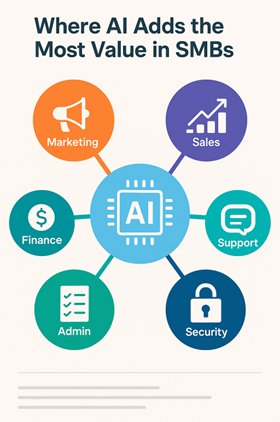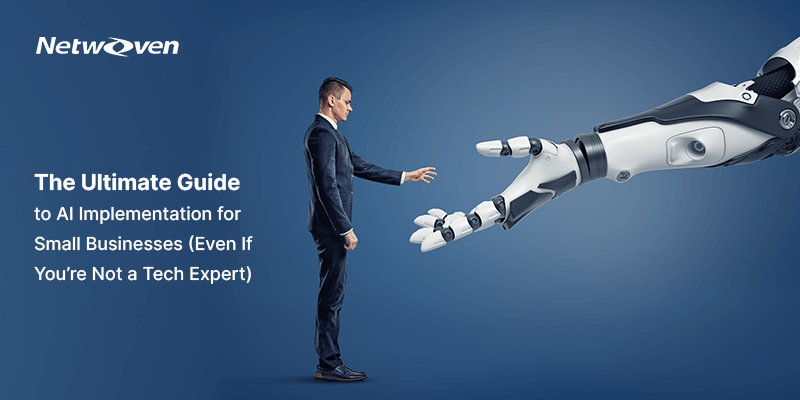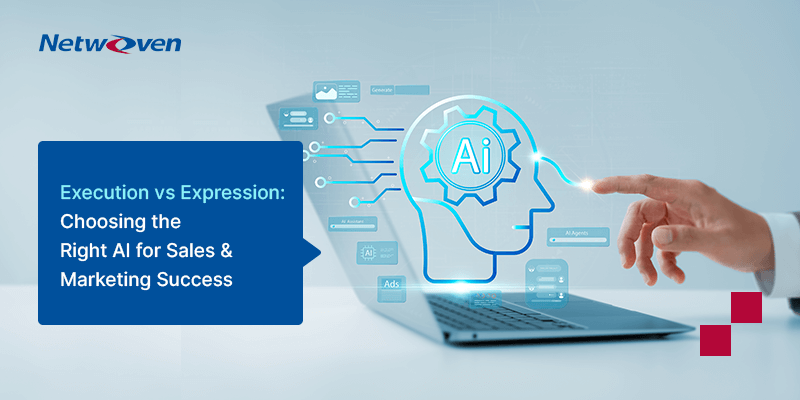Introduction
Artificial Intelligence (AI) is no longer reserved for tech giants. Small and mid-sized businesses (SMBs) are now using AI to automate tasks, improve customer service, and gain competitive insights-without needing a dedicated IT department.
According to Microsoft, nearly one in three small businesses are already using AI tools, and those that do are reporting 20–30% improvements in operational efficiency and customer satisfaction.
This guide breaks down how small businesses can implement AI, no matter your technical skill level, and shows how to leverage affordable tools like Microsoft 365, Copilot, and expert AI consulting services to get started.
What is AI Implementation for Small Businesses?
AI implementation refers to integrating artificial intelligence technologies-like machine learning, natural language processing, and automation-into your business operations.
For SMBs, this often means:
- Using AI-powered tools to automate repetitive tasks
- Leveraging chatbots for customer service
- Analyzing customer behavior for smarter marketing
- Enhancing security and fraud detection
- Predicting demand or inventory needs
Benefits of AI for SMBs
1. Boost Productivity
AI can automate manual processes like data entry, scheduling, and invoicing—freeing your team to focus on growth.
Stat: SMBs using Microsoft 365 Copilot report saving 10+ hours per employee per month by automating content creation and task summaries.
2. Improve Customer Experience
AI-powered chatbots can handle common customer questions 24/7, while personalized AI recommendations increase engagement and sales.
Use Case: An e-commerce SMB used Microsoft Azure AI to implement a recommendation engine and saw a 35% increase in average order value.
3. Make Data-Driven Decisions
AI analytics tools can analyze sales, customer, and operational data to identify patterns and trends.
4. Enhance Security
AI can detect threats, phishing attempts, and unusual activity far faster than humans.
Example: Microsoft Defender for Business uses AI to protect SMBs against evolving cyber threats with real-time insights and alerts.
How to Start: A Step-by-Step AI Implementation Roadmap
Step 1: Identify Business Challenges AI Can Solve
- Are you losing time to repetitive tasks?
- Do you struggle to respond quickly to customers?
- Do you have data, but no insights?
Start by listing your key pain points.
Step 2: Start with Ready-Made AI Tools
You don’t need to build custom models. Use tools you may already have access to, such as:
| Tool | Use Case | SMB Benefit |
|---|---|---|
| Microsoft 365 Copilot | Email, content, summarization | Time savings |
| Power Automate (AI Builder) | Automate workflows and processes | Reduce manual workload |
| Dynamics 365 | Sales and customer insights | Improved targeting & lead nurturing |
| Azure OpenAI | Chatbots, sentiment analysis | Enhanced customer experience |
Step 3: Leverage AI Consulting Services
Partnering with AI experts helps small businesses:
- Prioritize AI use cases
- Understand Microsoft licensing maximization
- Ensure compliance and security
- Avoid costly trial and error
Netwoven, a Microsoft Solutions Partner, offers tailored AI consulting services for SMBs-focused on security, ROI, and speed-to-value.
Step 4: Conduct a Feasibility Assessment
Before diving in, assess:
- Your data readiness
- System integration needs
- Staff training gaps
Netwoven’s Agentic AI Impact Analysis helps small businesses evaluate where they are and what’s possible-even if you’re not technical.
Step 5: Pilot and Scale
Start with one high-impact use case. Measure results. Then expand to other areas like marketing, HR, finance, or operations.
Real-World Use Cases of AI for Small Businesses
| Business Type | AI Use Case | Outcome |
|---|---|---|
| Retail Store | Personalized product recommendations | Increased sales + repeat purchases |
| Law Firm | AI-generated legal brief summarization | Saved 15 hours/week |
| Manufacturing | Predictive maintenance on machinery | Reduced downtime by 40% |
| Marketing Agency | Campaign performance prediction | 25% increase in ROI |

Common Questions About AI Implementation for Small Businesses
🤔 How can a small business use AI?
Small businesses can use AI to automate emails, manage customer support, analyze data, forecast sales, and improve cybersecurity.
🤔 Is AI too expensive for small businesses?
Not anymore. Tools like Microsoft 365 Copilot and Power Automate make AI affordable and accessible to SMBs with no coding required.
🤔 Do I need a developer to implement AI?
No. Most AI tools today come with low-code or no-code interfaces. For more advanced needs, working with an AI consulting partner is recommended.
🤔 How do I know if my business is ready for AI?
Start with a feasibility assessment to evaluate your data, tools, and processes. Services like Netwoven’s AI Impact Analysis are designed to help SMBs get started safely and strategically.
Maximize Your Microsoft Investment with AI
Most SMBs already have access to AI tools via Microsoft 365, Dynamics, or Azure-but aren’t using them to their full potential.
With the right guidance, you can:
- Use existing licensing to reduce costs
- Get secure AI adoption pathways
- Accelerate ROI from day one

Copilot for Microsoft 365 – Unveiling the Dynamics and Capabilities
Microsoft 365 Copilot is coming soon but is your organization ready? As organizations increasingly embrace Microsoft 365 Copilot for enhanced collaboration and productivity, the strategic planning of its rollout becomes critical. Read our eBook.
Get the eBookConclusion
AI is no longer a “future investment”- it’s a current competitive advantage. Whether you’re a startup or an established small business, AI can help you scale faster, serve customers better, and operate more efficiently.
You don’t need to be a tech expert. You just need the right tools – and the right partner.
🚀 Ready to Get Started?
Assess your small business’s readiness for AI with Netwoven’s Agentic AI Impact Analysis.
Start small. Scale smart. Stay secure.























